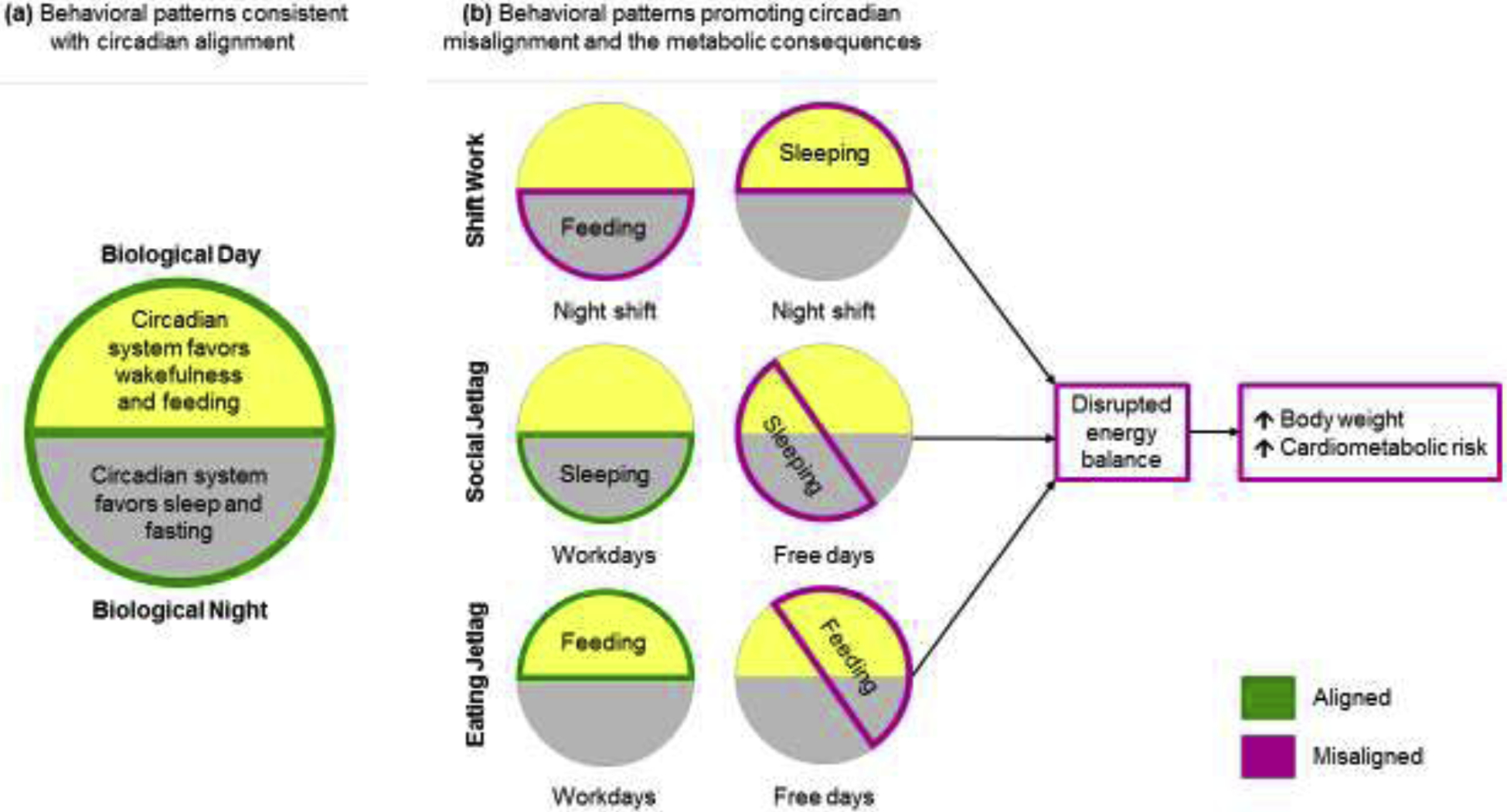Figure 1.

An overview of how mistimed sleeping and eating result in circadian misalignment and the metabolic consequences.
(a) The circadian system promotes wakefulness/feeding during the biological day and sleep/fasting during the biological night.
(b) Several behavioral patterns do not fit these endogenous preferences. Shift work: Awake/feeding at night and sleeping/fasting during the day, causing severe circadian misalignment. Social Jetlag: A shift in the midpoint of sleep on workdays vs. free days, causing mild circadian misalignment. Eating jetlag: A shift in the midpoint of the feeding episode on workdays vs. free days, causing mild circadian misalignment. These behavioral patterns result in a mismatch between the timing of eating/sleeping and the endogenous circadian system (indicated in magenta). Circadian misalignment is thought to disrupt energy balance, resulting in increased body weight and cardiometabolic risk.
